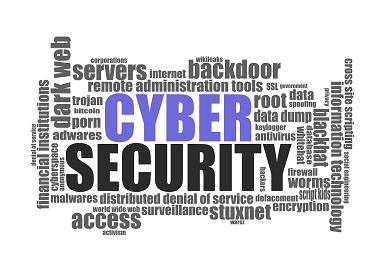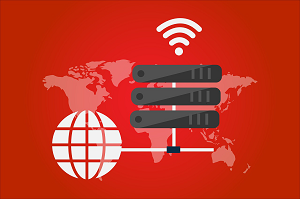Data Security Laws in China: An Introduction for Foreign Entrepreneurs and Investors
| Staff Reporter | | Oct 19, 2018 01:57 PM EDT |
The Cybersecurity Law of the People's Republic of China was formally introduced on June 1, 2017. The law (also called "the cybersecurity law" has resulted in much debate since its inception. Here we'll provide a summary of the most important parts of the Law.

Like Us on Facebook
Source: Pixabay
What is it?
The macro-level law has developed from the cybersecurity rules and regulations that were previously in place from various fields and levels.
The Law further provides principal norms on particular issues that aren't considered to be high-priority in the short-term but have longer-term significance. When issues come to the fore, these norms will act as a legal reference.
The Cybersecurity Law also offers legal liability definitions and regulations. The Law sets a number of different punishments for various kinds of illegalities, including suspensions and fines.
How are businesses affected?
The majority of issues around cybersecurity are still covered by old laws, as opposed to the current Cybersecurity Law. Enterprises, therefore, are forced to work out the most applicable compliance issues and solutions themselves. Most business issues revolve around data security and VPN.
Complying with data security
Legal observers believe that cybersecurity legislation will view data security as its No. 1 concern when it comes to its next review. Enterprises may well be preparing themselves for this by being proactive in making compliance adjustments in advance. They may be looking more towards external solutions, for example, such as employing the services of a data security company capable of securing data from attacks and simplifying regulatory compliance. Data security is one of the most important elements of any organisation and especially so in this day and age with cybercriminals being more active than ever in their efforts to steal data.
The definition of the term 'personal data' hasn't been made entirely clear. Many believe that a more formal definition will be introduced at some point. 'Data monitoring' is largely thought to be the collection, storage, transference, and usage of data. There is much debate going on when it comes to enterprises collecting personal data during operations. Many are looking for ways to continue doing this while remaining compliant. Some have opted to update the privacy policy on their website, stating the reasons and scope of their personal data collection, in addition to the use and storage of that data.
Complying with VPN

Source: Pixabay
VPN has been a problem for a long time. Authorities have tried numerous laws over the years in a bid to regulate VPN. Before the Cybersecurity Law was in place, corresponding law-enforcement failed to offer much by way of structure and many enterprises paid little attention when it came to complying with VPN laws.
After the Law was introduced, multinational corporations started to give more priority to VPN usage due to orders from authorities to "clean-up" their VPN usage. Current law states that enterprises can use VPN for internal work as long as they adhere to certain conditions, i.e. they buy VPN services from official suppliers and they file for a VPN usage record.
©2015 Chinatopix All rights reserved. Do not reproduce without permission
EDITOR'S PICKS
-

Did the Trump administration just announce plans for a trade war with ‘hostile’ China and Russia?
-

US Senate passes Taiwan travel bill slammed by China
-

As Yan Sihong’s family grieves, here are other Chinese students who went missing abroad. Some have never been found
-

Beijing blasts Western critics who ‘smear China’ with the term sharp power
-

China Envoy Seeks to Defuse Tensions With U.S. as a Trade War Brews
-

Singapore's Deputy PM Provides Bitcoin Vote of Confidence Amid China's Blanket Bans
-

China warns investors over risks in overseas virtual currency trading
-

Chinese government most trustworthy: survey
-

Kashima Antlers On Course For Back-To-Back Titles
MOST POPULAR
LATEST NEWS
Zhou Yongkang: China's Former Security Chief Sentenced to Life in Prison

China's former Chief of the Ministry of Public Security, Zhou Yongkang, has been given a life sentence after he was found guilty of abusing his office, bribery and deliberately ... Full Article
TRENDING STORY

China Pork Prices Expected to Stabilize As The Supplies Recover

Elephone P9000 Smartphone is now on Sale on Amazon India

There's a Big Chance Cliffhangers Won't Still Be Resolved When Grey's Anatomy Season 13 Returns

Supreme Court Ruled on Samsung vs Apple Dispute for Patent Infringement

Microsoft Surface Pro 5 Rumors and Release Date: What is the Latest?









